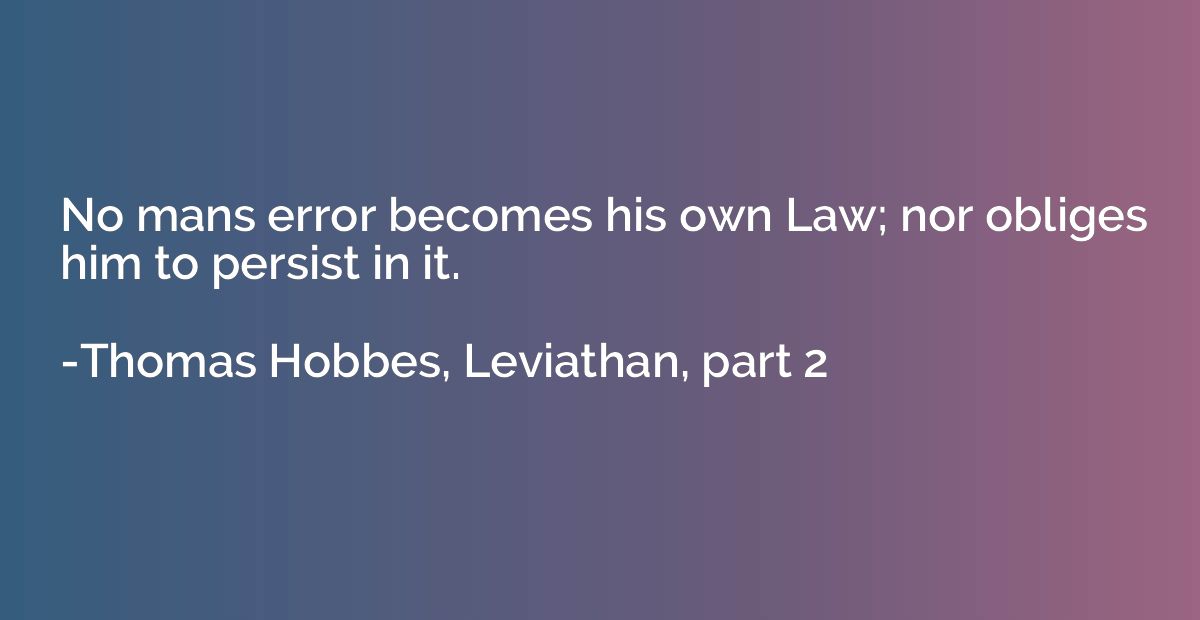Thomas Hobbes, Leviathan, part 2 Quotes
A collection of quotes by Thomas Hobbes, Leviathan, part 2.
Thomas Hobbes (1588-1679) was an influential English philosopher and political theorist, best known for his famous work Leviathan. Born in Westport, Wiltshire, Hobbes received his education at the prestigious Oxford University before embarking on a lifelong pursuit of knowledge and intellectual advancement.
Hobbes lived during a tumultuous time in England's history, marked by civil war and political upheaval. His experiences during this period strongly influenced his political philosophy, which emphasized the necessity of a strong central authority to prevent the chaos and brutality of a state of nature.
Published in 1651, Leviathan is Hobbes' most renowned work, in which he presents his vision of an ideal societal structure, arguing that an absolute sovereign should hold power to maintain peace and order. He believed that humans are driven by self-interest and an insatiable desire for power, and without a strong government to check their actions, society would descend into a never-ending cycle of conflict and violence.
Hobbes’s ideas in Leviathan sparked intense debates and controversies, challenging established theories of governance and human nature. Despite facing criticism from other prominent philosophers of his time, such as John Locke, his work laid the foundation for modern political science and played a crucial role in shaping future political thought.
Throughout his life, Hobbes continued to write extensively on a wide range of subjects, including philosophy, science, and history. His unparalleled contributions to political theory continue to inspire scholars and provoke discussions about the nature of power, authority, and the social contract.



